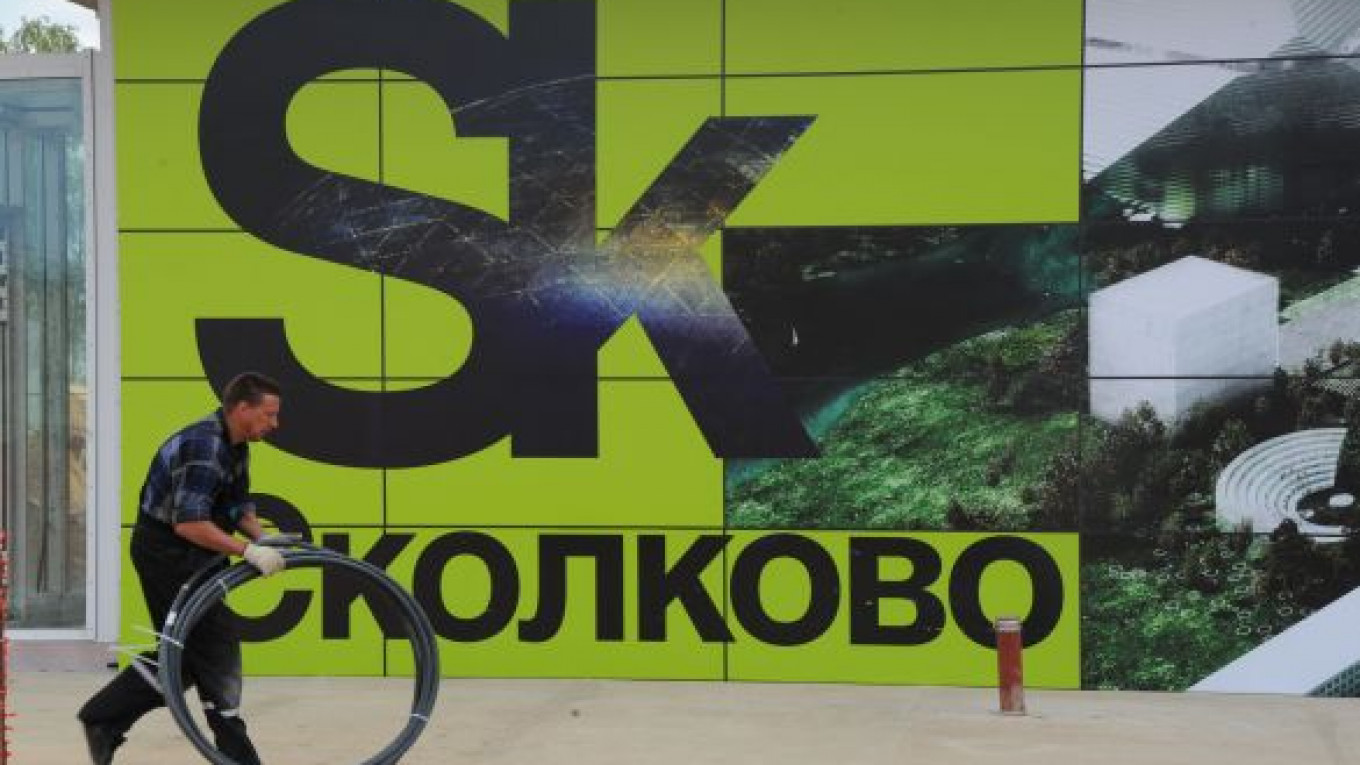Fraudulent schemes used during the creation of state-owned innovation hub Skolkovo have created the potential for misspending almost $4 billion in state funds, the Prosecutor General's Office said Wednesday.
"A lack of proper control on the part of Skolkovo Fund management over implementation of the project has prompted uncontrolled and wasteful expenditures harmful to state interests," the prosecutor's office said in a statement, adding that billionaire Skolkovo president Viktor Vekselberg had been asked to fix the numerous legal violations in the fund's activity and compensate the damages.
Over the last year, Skolkovo, the pet project of Prime Minister Dmitry Medvedev, who created the hub in 2010 when he was president, has become a frequent target of checks by law enforcement, with Skolkovo's top management even being prosecuted and accused of embezzlement.
Observers have speculated that the investigations are part of an ongoing feud between hard-liners in law enforcement agencies loyal to President Vladimir Putin and a more liberal camp of officials led by Medvedev.
The huge amount of potential losses cited in Wednesday's statement indicated a potential escalation in the fight over the project, which Medvedev envisioned as a vehicle for attracting foreign investment and spurring innovation to diversify Russia's economy.
According to prosecutors, Skolkovo management said it had paid more for certain services than their real cost turned out to be, making it possible for 125 billion rubles ($3.9 billion) in funds to be misspent. The statement cited examples such as the allocation of 54 million rubles for the creation of promotional videos whose real cost was no more than 5 million rubles, and the spending of some 600 million rubles on consulting services that actually cost about 200 million rubles.
The statement also said "shadow schemes" were used when giving grants, such as the issuing of funds to allegedly fictitious companies or to firms affiliated with Skolkovo, including those in offshore zones.
Skolkovo said in a statement Wednesday that some of the violations had been already eliminated and that a plan for their further correction had been drawn up together with the Prosecutor General's Office. Measures to control the transparency of the grant-giving process and the funding of construction projects had already been approved, Skolkovo said.
Prosecutors said the fund had already repaid 15 million rubles in damages incurred by two advertising contracts. A court complaint has been filed to make Skolkovo pay another 30 million rubles.
A Skolkovo representative said the prosecutors' statement was not unexpected.
"This is not a business of one or two days — the Prosecutor General's Office inquiry has been going on since April on the basis of the Audit Chamber's and the Investigative Committee's decisions," the representative said. "Skolkovo has responded to all the requests from law enforcement authorities and provided them with conclusions of our internal financial services and audit reports."
Vladimir Pribylovsky, an expert on the security services and head of the Panorama think tank, said the fact that the Prosecutor General's Office was accusing Skolkovo meant there was pressure on the agency from other law enforcement authorities, as Prosecutor General Yury Chaika is an ally of Medvedev.
He also confirmed that the information in Wednesday's statement was directed at Medvedev's circle, particularly at businessman Vekselberg.
"The Prosecutor General's Office has mostly defended Medvedev so far, but there are different people in the office, and there could be those affiliated with [Investigative Committee head] Alexander Bastrykin among them," Pribylovsky said, adding that prosecutors could be accused of inactivity and an alliance with Medvedev.
The Investigative Committee searched Skolkovo and opened criminal cases against several Skolkovo officials on embezzlement charges earlier this year, while public wrangling in May between the committee's spokesman Vladimir Markin and then-Deputy Prime Minister Vladislav Surkov over embezzlement at Skolkovo purportedly led to Surkov's resignation from the Cabinet.
Another prominent case affected the center's deputy president, Alexei Beltyukov, who allegedly gave $750,000 to opposition State Duma Deputy Ilya Ponomaryov as payment for his lectures at Skolkovo and a research paper. Prosecutors said the amount was unreasonably high.
Olga Kryshtanovskaya, head of the Elite Studies Center and a former United Russia member, said the Prosecutor General's Office checks were no more than the regular work of law enforcement authorities to uncover corruption.
"A court will decide whether there was corruption or not, but for now it is early to talk about that, since no specific people have been accused on this matter yet," she said.
Pribylovsky also said it was difficult to say whether the accusations were fair but acknowledged that the work of Skolkovo could be disrupted by regular attacks on it from law enforcement, with foreign investors suspending their projects there as a possible result.
"Any amount of money can be stolen in Russia, and it's wrong to say that liberals are more honest than security officials, or vice versa," he said.
Contact the author at e.kravtsova@imedia.ru
A Message from The Moscow Times:
Dear readers,
We are facing unprecedented challenges. Russia's Prosecutor General's Office has designated The Moscow Times as an "undesirable" organization, criminalizing our work and putting our staff at risk of prosecution. This follows our earlier unjust labeling as a "foreign agent."
These actions are direct attempts to silence independent journalism in Russia. The authorities claim our work "discredits the decisions of the Russian leadership." We see things differently: we strive to provide accurate, unbiased reporting on Russia.
We, the journalists of The Moscow Times, refuse to be silenced. But to continue our work, we need your help.
Your support, no matter how small, makes a world of difference. If you can, please support us monthly starting from just $2. It's quick to set up, and every contribution makes a significant impact.
By supporting The Moscow Times, you're defending open, independent journalism in the face of repression. Thank you for standing with us.
Remind me later.


